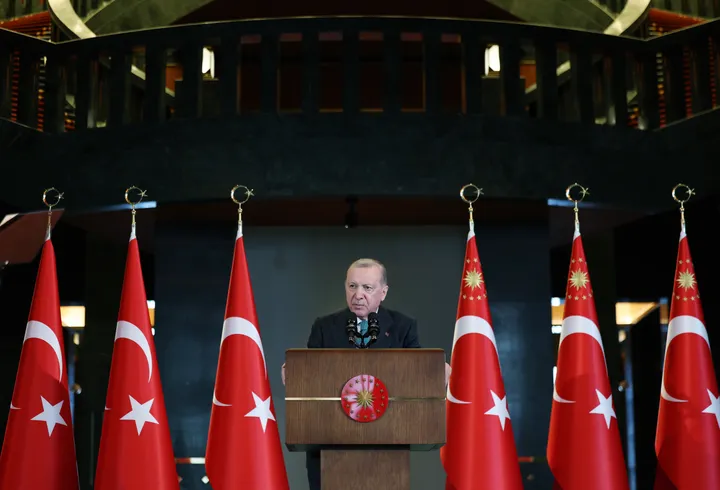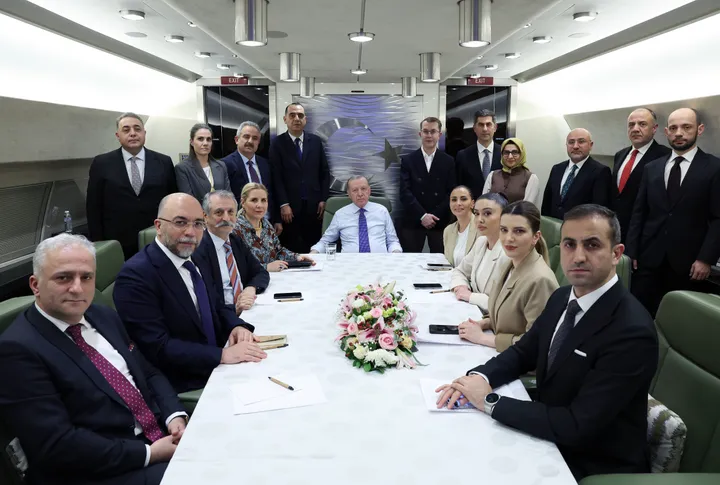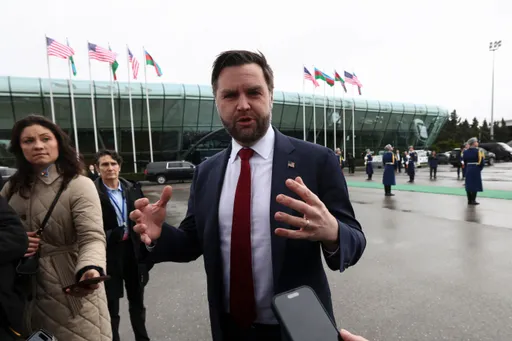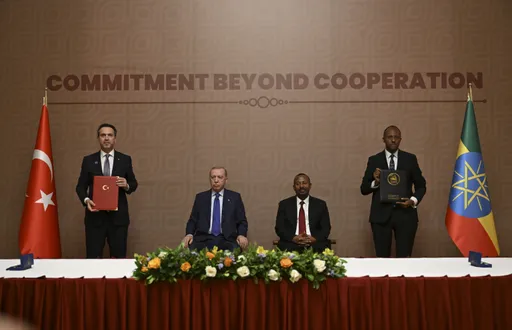Turkish expats in 73 countries have started voting in Türkiye’s presidential and parliamentary elections, kickstarting the democratic process that will decide the fate of several candidates, including incumbent President Recep Tayyip Erdogan.
Voting in Türkiye for the parliamentary and presidential polls will be held on May 14.
The primary challenger to the governing conservative-nationalist alliance under President Erdogan will be the opposition bloc led by Kemal Kilicdaroglu, chairman of the Republican People’s Party (CHP).
Erdogan is the AK Party leader and the People’s Alliance’s presidential candidate, while Kilicdaroglu is the opposition Nation Alliance candidate for the top post, along with two other runners, Muharrem Ince and Sinan Ogan. On May 14, both parliamentary and presidential polls will be held simultaneously.
Many analysts believe the elections will be a contest between the AK Party, the country’s most robust and durable conservative movement, and the CHP, the country’s first political party that ruled Türkiye between 1923 and 1950 without any real competition.
In the last hundred years, Türkiye has gone through more than 25 general elections as well as many local and presidential elections.
Here is a look at the most critical poll, which changed the country’s political direction in consequential ways:
1923
In many ways, this election set the course of Türkiye’s political system under the leadership of Mustafa Kemal, an Ottoman pasha (who took Ataturk as his last name in 1934). Ataturk had led the Turkish Independence War against occupying Greeks, who were backed by the Allied powers following the fall of the Ottoman Empire in WWI.
It all began when Allied troops occupied Istanbul, the capital of the Ottoman Empire, and started their invasion through the Anatolian heartland of the empire. Mustafa Kemal and his allies called a Grand National Assembly to be gathered in Ankara, the current capital of Türkiye, to organise resistance against the occupying powers.
In April 1920, the Grand National Assembly was opened after elections were held across the free territories as some former members of the last Ottoman parliament also joined this new Ankara-based legislative body. This assembly was an interesting collection of different political views, even though all of them believed in resistance against the occupation forces.
There were two factions in this war assembly: The First Group, led by Mustafa Kemal and his allies, and the Second Group, backed by conservative forces. Following the successful Independence War, the political infighting between these two groups became apparent in the Grand National Assembly.
The 1923 election was held before the declaration of Türkiye as a republic on October 29 of the same year – in the backdrop of the internal political infighting between Mustafa Kemal and his opponents in the Second Group, who refused to approve the Treaty of Lausanne, the peace agreement between Ankara and the Allied Powers, and some other political measures the First Group advocated.
Mustafa Kemal thought the best way to dismantle opposition was to dissolve the war assembly and call an early election in April 1923. The Second Group boycotted the election, claiming the assembly’s dissolution to be unconstitutional.
Mustafa Kemal’s supporters gained a majority in the Grand National Assembly, and the First Group renamed itself the People’s Party, which would later become the Republican People’s Party (CHP). But the opposition reorganised under the Progressive Republican Party (TFC), which was closed down by Ankara authorities in 1925.
Many analysts believed the 1923 election laid out the CHP’s one-party rule till 1950, when the opposition conservative Democratic Party won the elections and claimed power, leading Türkiye’s transition to a multi-party system.
1950
The CHP ruled Türkiye single-handedly until the end of WWII when Ankara launched a process of allying with the West against the Soviet-led communist block. In the 1946 poll, for the first time ever since 1920, Ankara allowed other political factions like Democratic Party to contest the elections.
But the election witnessed many voting suppression tactics of the CHP, which was able to hold its majority in parliament thanks to a controversial election law. Interestingly, the same election law would help the Democratic Party win a big majority in the next election in 1950.
The 1950 election was a crucial milestone in terms of the development of Turkish democracy and the establishment of free elections in Türkiye.
“Enough! People have the right to decide”, which was Democratic Party’s campaign slogan during the 1950 poll, was engraved in Turkish political memory as the symbol of the country’s transition from one-party rule to a multi-party system.
But in 1960, the process of free elections and Turkish democracy was interrupted by a military intervention, which would repeat itself in 1971, 1980, 1997 and 2007.
2002
Between the 1960 and 1980 military coups, conservative parties like the Justice Party (AP), which claimed to follow the core ideas of the Democratic Party, continued to win most elections gaining majorities in parliament. After the 1980 coup, the Motherland Party (ANAP), another conservative party, won a majority in the 1983 election.
In the 1990s, when the ANAP lost its majority, coalition governments became a political reality. The 1980 coup leaders allegedly aimed to eliminate it as a threat to the country’s stability.
With the 1997 coup, the Turkish political system became even more unstable as a large coalition comprising opposing factions faltered in leading the country. This eventually led to the emergence of the new powerful political actor, the AK Party, in 2001.
Eventually, the next year, this fragile coalition government was broken up, calling for an early election, which paved the way for the AK Party, to come to power with the 2002 poll. The AK Party would go on to govern Türkiye for the next two decades.
The 2002 election ended the reign of coalition governments and also led to the annihilation of the ANAP and True Path Party (DYP), the two centre-right groups of the 1990s, which could not pass the 10 percent election threshold introduced by the post-coup government in 1983.
Under the charismatic leadership of Erdogan, a former mayor of Istanbul who was banned from politics in the late-1990s, the AK Party won a majority in back-to-back elections in 2007, 2011 and 2015.
In 2018, Erdogan’s conservative-nationalist People’s Alliance won a majority in parliament as the AK Party leader won another presidential mandate following Türkiye’s transition to a presidential model from a parliamentary system with the 2017 referendum.
2023
Many internal and international analysts and Turkish political leaders believe the upcoming elections will be one of the country’s most tight-fought polls for various reasons.
Among others, the polls will witness the duel of the two powerful blocks, the People’s Alliance led by Erdogan, the most powerful leader in recent Turkish history and the Nation Alliance led by Kilicdaroglu, the leftist CHP head.
“On May 14, a choice will be made on whether our country will become a global playmaker or an unimportant political actor,” said Erdogan in a reference to the May elections. “May 14 is a breaking and crossroads point for our Türkiye. You will open the pages of the Turkish Century with your votes,” said Devlet Bahceli, the MHP leader and the ally of Erdogan.
The opposition also believes the May election will be a critical turning point for the country.
While Erdogan’s People’s Alliance is backed by the AK Party, Nationalist Movement Party (MHP), Grand Union Party (BBP), New Welfare Party (YRP) and HUDA-PAR, the Nation Alliance, called Table of Six, comprises the CHP, IYI Party, Saadet Party (SP), Gelecek Party (GP), DEVA Party and Demokrat Party.























